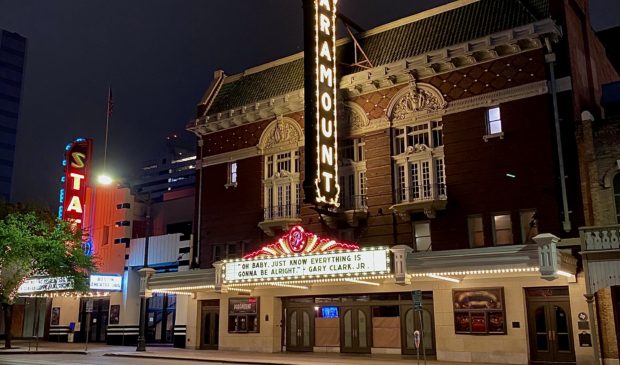City rolls out bridge loan program to assist businesses impacted by Covid-19
Thursday, April 23, 2020 by
Chad Swiatecki Small businesses now have another option for financial assistance in the midst of the Covid-19 pandemic, in the form of a new loan program from the city that will provide up to $35,000 per recipient.
On Wednesday the city announced the Austin Economic Injury Bridge Loan Program, which has total funding of $6 million and is intended to provide quick relief for businesses either waiting for funds from the U.S. Small Business Administration or that were unsuccessful in their application.
Veronica Briseño, director of the Economic Development Department, said the program can fund loans to 170 businesses if each recipient accepts the maximum amount. She said it is possible but undecided at this point whether more funding will be allocated to provide additional loans once the first round is complete.
The loans are available to small businesses headquartered in any of the 10 City Council districts that can demonstrate an economic loss connected to the pandemic. Recipients must repay the city in 12 months at a 3.75 percent interest rate.
The department will have staff available to serve as case managers for applicants and provide needed assistance, with the hope of avoiding the frustrations many businesses experienced when applying for federal loans under the Paycheck Protection Program.
“We do anticipate the demand for these loans will be high, and because of that we have worked hard to develop the proper infrastructure,” she said. “We’re closely watching what has happened at other levels of government when a program like this has been released, and we took our time to make sure our website is set up to handle the load as well as having staff deployed to assist applicants. We do also recognize there might be a need to reconvene and look at how we could fund this program with additional dollars at some point.”
The loan program comes on top of other moves by the city in recent weeks, including allocating $15 million that will be used to provide housing and food assistance or direct cash payments to vulnerable residents.
Jon Hockenyos, an economist who has helped provide analysis of the effects of the pandemic on city finances and the local economy, said providing bridge funding to keep struggling businesses open is the first step in stabilizing businesses. He said the next step will be creation of a plan to open more currently shuttered businesses for limited commercial activity while keeping them safe from a public health standpoint.
That framework means businesses that require large numbers of customers gathered in one place will likely be the last to reopen. Over the past week, Gov. Greg Abbott and leaders at the city and county level have indicated that the first reopening of limited types of businesses will occur in early May.
“If you’re a ball-bearing factory you have to think about how do I protect my workers and in that process modify my business processes, and there are people doing that,” Hockenyos said. “What’s going to happen next will be businesses that serve people one at a time, like going and getting a haircut or going to get your teeth cleaned or seeing your accountant – we’ll figure out how to do that interaction one-on-one safely for both parties,” he said.
“Where it gets tricky is with a bar or restaurant or movie theater, concert or hotel where you’re open to the public and there are a lot of people to think about, because you’re going to have to do all the other stuff while thinking about how to do it with reduced capacities.”
Hockenyos said the bridge loans will likely need to be supplemented by enhanced unemployment programs for workers, with the goal of covering some basic capital costs to keep businesses from closing for good.
“There’s not enough resources out there to bridge the gap until we get open again. This is about keeping the business itself alive rather than preserving the livelihood of everyone working in the business, but the hope is that you bring everybody back at some point.”
Photo made available through a Creative Commons license.
The Austin Monitor’s work is made possible by donations from the community. Though our reporting covers donors from time to time, we are careful to keep business and editorial efforts separate while maintaining transparency. A complete list of donors is available here, and our code of ethics is explained here.
You're a community leader
And we’re honored you look to us for serious, in-depth news. You know a strong community needs local and dedicated watchdog reporting. We’re here for you and that won’t change. Now will you take the powerful next step and support our nonprofit news organization?











